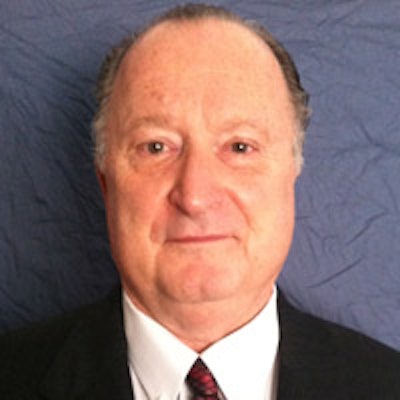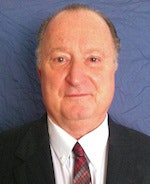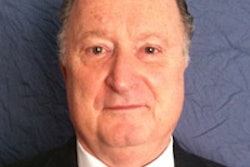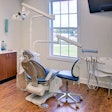
Well, it sure sounded good. A colleague of mine was recommending my valuation services to a solo practitioner with six associate dentists and 18 operatories. I put pen to paper, fired up my Microsoft Excel, and began sketching a rudimentary pro forma for evaluating the earnings before interest, taxes, depreciation, and amortization (EBITDA) and net income to tag along with dental practice and hygiene sales.
Then it happened as it has happened often before. My colleague called to reluctantly inform me that her principal asked why "he should pay Dr. Climo for a valuation service" when a transition or dental broker will order him an appraisal for free. There was a time I used to argue back, but I no longer do. I usually just reference the famous line attributed to economist Milton Friedman: "There's no such thing as a free lunch."
 Thomas Climo, PhD, is a dental practice management consultant and a past professor of economics in England.
Thomas Climo, PhD, is a dental practice management consultant and a past professor of economics in England.I'm shaking my head at how smart men or women would allow a broker to guide their decision about what price to ask for in the sale of their practice. Dentists must know brokers have a vested interest in a fast sale. For brokers, the difference in commission of $100,000 here or there is of less interest than a quick turnover. Whereas most dentists keep a sharp eye on salespeople flogging dental equipment or supplies in the hundreds or thousands of dollars, here a million-dollar decision is being handed over to a broker.
Differentiating the role of a dental broker from that of an independent financial consultant is fairly easy. Like the travel agent industry which no longer plays a role in the handling of business or recreation travel, dental brokers do not, and never did, uncover any "deals." Rather they are a passive vehicle requiring input from the dentist (the business traveler parallel) who wants to sell a practice. Their sole creative contribution is placing ads in print or Internet locations where dentists wanting to buy a practice are known to look.
So-called transition brokers, for the most part, use a boiler-plate solicitation package that they usually don't understand, and, in my experience, demonstrate no knowledge of the economics of dentistry. And what they charge is outrageous. I am currently selling a $5 million set of four dental practices for a fixed $100,000 success fee (2% commission), while dental brokers often command commissions of 10% to 12% ($500,000 to $600,000), and, in the case of investment banks, the right to charge a nonrefundable upfront retainer sometimes as high as $75,000 as well as a commission, whether they find a buyer or not. As practitioners such as Dr. Michael W. Davis have commented, dentists should find knowledgeable, informed consultants who can and do find buyers much easier and at a much more affordable transaction cost than dental brokers. Dental brokers ought to go the way of travel agents.
Financial consultants, on the other hand, roll up their sleeves and dig into the trenches of a practice's operating performance. The connection between management and financial accounting is examined, so that the financial statements of a practice can be put into the best possible light for a practice's sale. When the time comes, who better to know the strengths and weakness of a selling scenario than the financial consultant who sweated with the owner-dentist to achieve a positive and demonstrable financial outcome?
By "financial consultant," I am not speaking of certified public accountants (CPAs) who create broker or transition divisions within their firms. A CPA is compiling or expressing an opinion on the asset base and annual operating performance of a dental practice. The CPA has no right to lever such a professional responsibility into a conflict-of-interest situation where the CPA firm is also selling the practice the firm has prepared a report about. In law, representing a client in a legal capacity would not permit a transition to a marketing capacity, nor should it be permitted in the dental industry.
On top of the lack of intimate knowledge of the practices they sell, the dental broker is also unable to determine whether the buying dentist can fund the purchase, or whether a hand-off from one practice owner to another will be for the good of the community. A dentist who has kept poor records replacing one who has strived to improve his record keeping may not be the match that is best for patient care. Due diligence is a two-way street: buyer on seller and seller on buyer.
As to pricing, dental brokers are tied to old-fashioned appraisal methods usually predicated on prior-year sales or collections at a percentage less than 1. Although the economics of such a methodology is hard to unravel, I did so recently by connecting net income margin with prior-year sales in "Financial reporting is key when buying a dental practice" (August 27, 2013). Assuming the same total revenues for eight practices, I captured the market rate likely to be used as a percentage of prior-year sales by tying it to the operating performance of the practice as measured by net income margin. To my knowledge, this is the first and only demonstration of the economic rationale for an otherwise unexplainable method of valuation.

Despite finally having a table that helps explain the rationale of the appraisal process used in pricing by dental brokers, it remains a mystery as to why a selling dentist would accept this rationale. In the case of practice No. 8 with a 12% net income margin, which arises from an EBITDA margin of 18%, if not more, the final or fourth method of valuation in my "The 4 methods of valuation -- Part 3" (June 23, 2014) prices a private pay practice at six times EBITDA. Since an 18% EBITDA margin on $6 million of total revenues is $1.08 million, six times EBITDA equals $6.48 million, or a 1.08 sale price multiple, considerably more than the 0.90 multiple put up for sale by a dental broker.
In this illustration, using a dental broker has kept over a million dollars off the table and out of the pocket of the selling dentist, the difference between a $6.480 million price and a $5.4 million price. Whereas windfalls have fallen on buyers for years through the dental broker process, the time has come to stop such needless generosity so that price equilibrium can be re-established by correctly valuing a dental practice without providing windfalls to buyers. The fact that with the higher price goes a lower commission -- a flat fee $100,000 or 1.5% of $6.48 million contrasted with $777,600 or 12% of $5.4 million -- should leave little doubt on whose door a dentist should knock when considering selling a practice.
As to the argument that financial consultants do not have the demographic or sales knowledge to exercise a time-is-of-the-essence transaction, I can only say "bunk." In the $5 million sale mentioned above, I presented the selling dentist with four options from four different buying sources: 1) A former associate with family money behind him; 2) a solo practitioner from a different state looking to expand his footprint; 3) a fledgling dental practice management company (DPM) anxious for its first acquisitions; and finally, 4) a seasoned DPM entirely owned by a private equity group. I have yet to see a dental broker lay down such a balanced and reasonable set of options for a selling dentist to consider.
Returning to the opening theme of losing out on a valuation assignment owing to the employment of a dental broker, I hope I have given cause for selling dentists to reconsider using boiler-plate appraisals. This consideration should also extend to buying dentists who should wish to know the economic valuation of a dental practice rather than the contrivance they have benefited from in recent memory. Buying dentists may hate me for lifting the price of the seller's practice, but, they should remember that one day they too will be sellers and, at that time, will appreciate the effort of raising the price of dental practices to its market equilibrium.
Deliverables are at the forefront of the successful execution of any consulting assignment that includes selling a practice. Deliverables should be attached to the end of a jointly signed consulting agreement. Consultants should not be paid for anything they did not deliver. That's how to avoid the consulting or broker scams as outlined by Dr. Davis in his recent series. I am sure he would agree with me.
Thomas Climo, PhD, is a professor emeritus of accounting and finance at a major university in the U.K. He has published extensively about the importance of modern managerial and financial decision-making for dentistry. He is a consultant to corporate and solo practitioner dental practice management companies in the states of Arizona, California, Connecticut, Nevada, New Hampshire, New York, and Massachusetts. He can be reached by email at [email protected] or by telephone at 702-578-2757.
The comments and observations expressed herein do not necessarily reflect the opinions of DrBicuspid.com, nor should they be construed as an endorsement or admonishment of any particular idea, vendor, or organization.



















